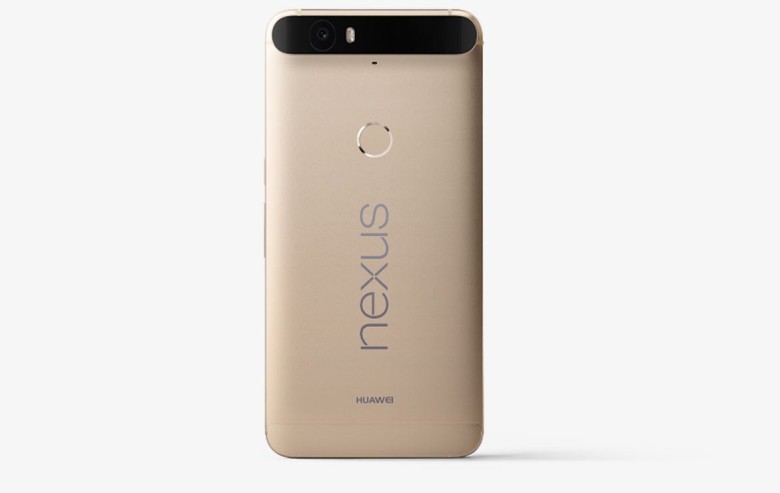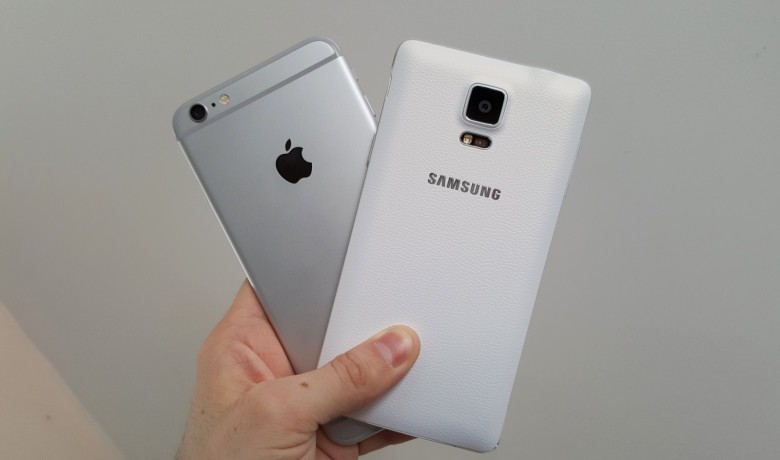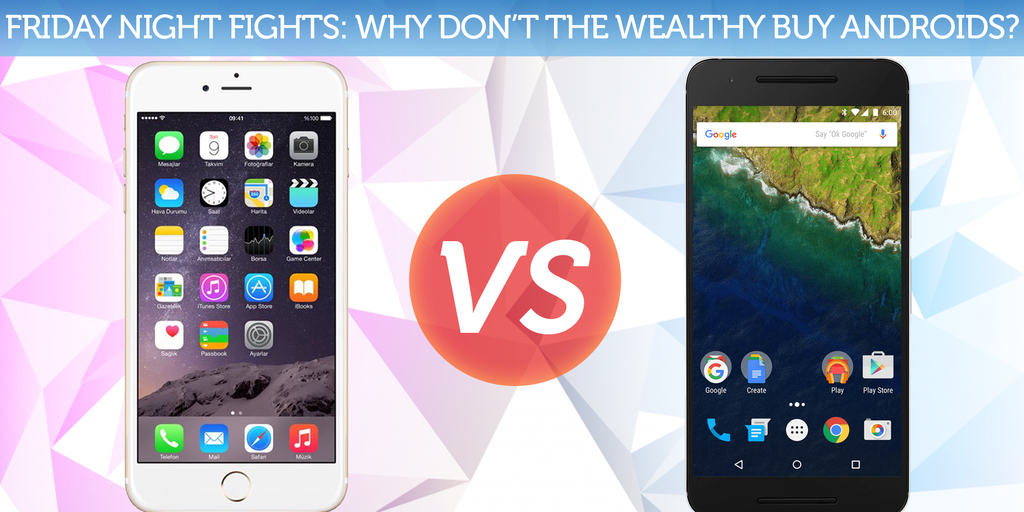The war between iPhone and Android will wage on for years to come, but in this week’s Friday Night Fight, we’re not going to be bickering about which is best. At least not in terms of design, features, flexibility — and the other things normally discussed during a platform war.
 Instead, we’re battling it out over the supposed class divide — the notion that the wealthy only buy iPhones, and the poor only buy Android because they can’t afford that Apple logo. It’s going to be a fun one!
Instead, we’re battling it out over the supposed class divide — the notion that the wealthy only buy iPhones, and the poor only buy Android because they can’t afford that Apple logo. It’s going to be a fun one!
So, join us below for one of our hottest Friday Night Fights yet, and be sure to weigh in at the end!
 Luke Dormehl (Writer, Cult of Mac): Last week, you and I talked about the new TAG Haeur smartwatch. One of the things mentioned by myself was the price discrepancy between your average Android and Apple device — leading to an irate comment or two by readers, suggesting that I had no idea what I was talking about. In the aftermath, you and I got talking — and one of the things we discussed was whether iPhones really do end to appeal more to well-off users, while Androids are bought predominantly by poorer ones.
Luke Dormehl (Writer, Cult of Mac): Last week, you and I talked about the new TAG Haeur smartwatch. One of the things mentioned by myself was the price discrepancy between your average Android and Apple device — leading to an irate comment or two by readers, suggesting that I had no idea what I was talking about. In the aftermath, you and I got talking — and one of the things we discussed was whether iPhones really do end to appeal more to well-off users, while Androids are bought predominantly by poorer ones.
To be honest, I’m still kind of baffled this is even up for discussion. Every study we see suggests that this is pretty self-evident. We have studies showing that Android users tend to live in less affluent areas than iPhone owners, as demonstrated by analyzing 3 billion geo-tagged tweets and locating them on a map.
Others show how much more money iOS app developer makers earn than Android ones because, again, Android appeals predominantly to users with less disposable income. Still, others compare likely holiday destinations for iPhone users, as indicated through travel website searches, compared to Android users. No surprises: iOS users favor more expensive destinations than their Android counterparts.

Photo: Google
 Killian Bell (Writer, Cult of Android): I’m beginning to wonder whether we should change the name of this feature to “Luke blindly bashes Android.”
Killian Bell (Writer, Cult of Android): I’m beginning to wonder whether we should change the name of this feature to “Luke blindly bashes Android.”
What I and many of the readers took issue with last week was the suggestion that Android devices were designed exclusively with poor people in mind, and only bought by those who couldn’t afford an iPhone. I also take issue with these studies you keep bringing up — and indeed your strange obsession with them. I wouldn’t be surprised if you were printing them out and hanging them around your home.
Here’s why those studies are silly: Android is more popular in less affluent areas and emerging markets because it’s more accessible. The large catalog of devices at a broad range of price tags means there’s something for everyone, regardless of how much money they have in the bank, so it’s only natural that Google’s platform proves more popular among the budget-conscious.
However, it’s not that those with a big budget don’t consider Android at all. Yes, Apple’s iconic brand means there’s a large portion of consumers who will only consider an iPhone, because nothing else carries the Apple logo. But plenty of wealthy people buy handsets from other vendors. If they didn’t, Samsung and others wouldn’t keep making them year after year.
As for developers making less on Android, that should not be blamed solely on “users with less disposable income.” The real problem is piracy; Google makes it too easy for Android users to download and install apps from third-party sources, and only a small percentage of paid apps are actually paid for — the rest are pirated.
That’s a huge shame, but it’s not because Android users can’t afford those apps — they just don’t have to pay for them because it’s too easy to steal them.
 Luke: I don’t think at all that Android devices are designed exclusively with poor people in mind — whatever that would mean. There are plenty of Android users who will buy Android devices for reasons other than cost. Hell, there’s not too much difference between buying a new iPhone 6s and buying a Galaxy S6 Edge — and I’m sure that Sergey Brin and Larry Page are Android users, who are certainly far, far richer than I’ll ever be.
Luke: I don’t think at all that Android devices are designed exclusively with poor people in mind — whatever that would mean. There are plenty of Android users who will buy Android devices for reasons other than cost. Hell, there’s not too much difference between buying a new iPhone 6s and buying a Galaxy S6 Edge — and I’m sure that Sergey Brin and Larry Page are Android users, who are certainly far, far richer than I’ll ever be.
But that’s partially because others have “borrowed” Apple’s premium strategy. Anyone doubting that Apple didn’t lead the way when it comes to charging more for smartphones aimed at the top-end of the market should check out this video showing Steve Ballmer laughing himself into YouTube infamy after hearing how much the first-gen iPhone was going to cost.
But the macro story is definitely true. Which is why Android is dominating in developing countries, while Apple has a luxury brand few others could hope to achieve. It’s not as cut and dried as to say that all iPhone users are richer than all Android users, but I don’t see how you can’t argue that this is the average situation when looking at overall mobile usage around the world. And Apple’s very conscious about this, which is why it’s avoided going down channels like making an ultra-low cost handset, as the iPhone 5c was originally rumored to be. It understands that it needs to keep its brand premium, and that chasing market share for the sake of it is pointless.
So here’s a question for you then? Do you think that any of Apple’s rivals are making headway in becoming more “exclusive” brands a la Apple? After all, Samsung has pretty much driven parts of its mobile division into the ground trying to match up to Apple in this department — and Cupertino still makes 95 percent of the smartphone profits.
 Killian: Apple wasn’t the first to adopt a premium strategy, and others aren’t “borrowing” it; they’re just adapting to the market. Samsung didn’t follow in Apple’s footsteps this time — it simply had to up its hardware game because it was being panned so much for making cheap smartphones, and fans eventually got fed up with that and sales started to decline.
Killian: Apple wasn’t the first to adopt a premium strategy, and others aren’t “borrowing” it; they’re just adapting to the market. Samsung didn’t follow in Apple’s footsteps this time — it simply had to up its hardware game because it was being panned so much for making cheap smartphones, and fans eventually got fed up with that and sales started to decline.
Apple may have been the first to introduce a wildly overpriced smartphone, but let’s not forget that just a year later, it reduced the price of the iPhone significantly. Balmer was laughing because the original iPhone was $500 on contract, which still seems crazy even today. It’s a lot cheaper to buy an iPhone now, and I don’t think Apple’s sales would be anywhere near what they are if it was still $500 fully subsidized.
I don’t think Apple has a luxury brand — luxury smartphones are the ones that come covered in crocodile skin and diamonds, and cost tens of thousands of dollars — it just has an iconic brand that’s cool, thanks to excellent marketing. Other manufacturers sell smartphones around the same price as the iPhone, and Samsung is one that’s been very successful at it — but its marketing isn’t as good. It’s not as hip to own a Samsung phone.
That’s the real difference in established markets: It’s not price tag or platform in many cases — we’re not comparing Fords and Ferraris — it’s that consumers buy an iPhone because it’s what they’re used to. It’s what their friends have, and it’s cool. Many won’t even consider a high-end Android because, again, they don’t have Apple logos on their backs.
I don’t think we should be referring to Apple as an “exclusive brand,” because it’s not. You can’t sell as many products as Apple does and be exclusive. I think the important question is whether any of its rivals are becoming as iconic, and I’d have to say no to that. But others will have their time; Apple can’t and almost certainly won’t stay top forever.

Photo: Killian Bell/Cult of Mac
 Luke: I’ll agree that there’s a fine line to be walked between being an exclusive luxury brand and a mass-market one, but I think most people would disagree with your assessment here. We see Apple repeatedly featured on lists with other exclusive brands, while the likes of Samsung languish in the background.
Luke: I’ll agree that there’s a fine line to be walked between being an exclusive luxury brand and a mass-market one, but I think most people would disagree with your assessment here. We see Apple repeatedly featured on lists with other exclusive brands, while the likes of Samsung languish in the background.
Again, let me reiterate my starting point — which is that Apple’s successfully sold as an exclusive, premium brand for people who have the means or the willingness to spend a bit more money on tech. Android has been successful around the world predominantly because it is accessible to less affluent consumers. Are there going to be exceptions here? Of course there are. Am I wrong about observing these larger trends? I don’t think so.
But let’s turn it over to readers. Do you side with myself or Killian? Leave your comments below, and have a great weekend.
Friday Night Fights is a series of weekly death matches between two no-mercy brawlers who will fight to the death — or at least agree to disagree — about which is better: Apple or Google, iOS or Android?


